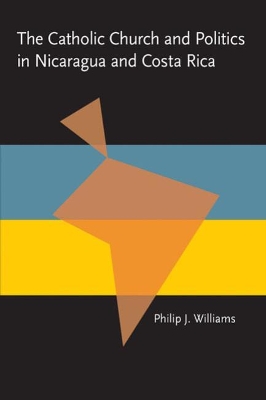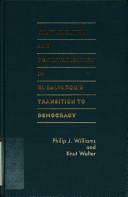Pitt Latin American
2 total works
The Catholic Church and Politics in Nicaragua and Costa Rica
by Philip Williams
Published 15 December 1989
Unlike most recent studies of the Catholic Church in Latin America, Philip J. Williams analyzes the Church in two very dissimilar political contexts-Nicaragua and Costa Rica. Despite the obvious differences, Williams argues that in both cases the Church has responded to social change in remarkably similar fashion. The efforts of progressive clergy to promote change in both countries have been largely blocked by Church hierarchy, fearful that such change will threaten the Church's influence in society.
Militarization and Demilitarization in El Salvador's Transition to Democracy
by Philip Williams and Knut Walter
Published 30 October 1997
With the resignation of General Renee Emilio Ponce in March 1993, the Salvadorian army's sixty-year domination of El Salvador came to an end. The country's January 1992 peace accords stripped the military of the power it once enjoyed, placing many areas under civilian rule. Establishing civilian control during the transition to democracy was no easy task, especially for a country that had never experienced even a brief period of democracy in its history.
Phillip J. Williams and Knut Walter argue that prolonged military rule produced powerful obstacles that limited the possibilities for demilitarization in the wake of the peace accords. The failure of the accords to address several key aspects of the military's political power had important implications for the democratic transition and for future civil-military relations.
Drawing on an impressive array of primary source materials and interviews, this book will be valuable to students, scholars, and policy makers concerned with civil-military relations, democratic transitions, and the peace process in Central America.
Phillip J. Williams and Knut Walter argue that prolonged military rule produced powerful obstacles that limited the possibilities for demilitarization in the wake of the peace accords. The failure of the accords to address several key aspects of the military's political power had important implications for the democratic transition and for future civil-military relations.
Drawing on an impressive array of primary source materials and interviews, this book will be valuable to students, scholars, and policy makers concerned with civil-military relations, democratic transitions, and the peace process in Central America.

